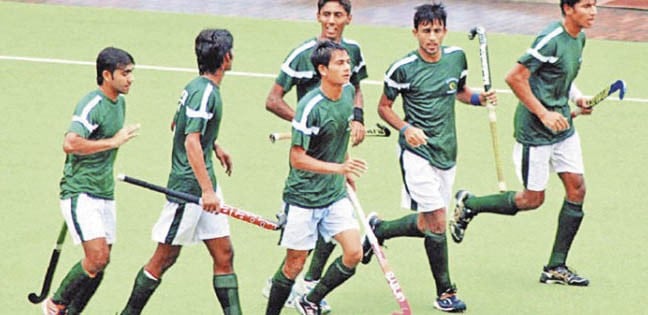

Pakistan’s junior hockey team’s performance in the recently concluded World Cup in New Delhi was pathetic, to say the least.
Germany retained the title by beating fast-rising France in the final of the event, in which 16 top junior teams from all five continents participated.
Pakistan secured ninth position. This performance reminded me of the nightmare, which we experienced in the 2010 World Cup where Pakistan finished 12th out of 12 teams. The former Olympians sent an SOS call to the nation after that debacle but nobody paid heed to it. Since then there has been a series of defeats in the past four years, which resulted in Pakistan’s failure to qualify for the World Cup 2014 in Holland. Now this performance of the junior team has caused another big shock to the nation.
I remember I was the coach of the junior team in 1991-1992. That team won the Asian Cup. As many as eleven players from that team were promoted to the senior side, which won the World Cup in 1994 under the leadership of Shahbaz Ahmed Senior. Ahmed Alam, Naveed Alam, Irfan, Danish Kaleem, Kamran Ashraf, Shahbaz Junior and Shafqat Malik were part of that team.
What happened in New Delhi shouldn’t have happened. After all, the current national junior team is by far the most privileged youth hockey line-up in Pakistan’s history. The team’s players have travelled around the world on ‘training tours’ under the supervision of Rana Mujahid, who was the team’s head coach for four years before becoming the PHF secretary following controversial elections.
Just three months before the Junior World Cup, the team was handed over to Manzoor Senior which I believe was an unwise move.
I personally believe that the same management should have been retained for the Junior World Cup. Before the team left for India, I visited the training camp and noticed that the team’s coaches were all defence players during their international careers. And that shortcoming was visible during the tournament as Pakistan plan was mostly based on half press which means that you give more ball possession to your opponents and rely on counter attacks.
Our captain, Umar Bhutta, was the team’s key forward but he was given a defence/attack role, a move which I think backfired. Bhutta was the only player in our team who has the ability of creating opportunities and get goals through them. But since he was made to marshal the defenders too, the youngster was unable to play his role in the attack.
Pakistan’s first match against Egypt (ranked 26th) was won by a slim margin of 3-2. It was enough indication to the other pool teams. The next game was against Germany, the title holders. This was a crucial game for both teams with back-to-back matches within 24 hours. Against the Germans, Pakistan were under pressure and conceded a goal in the first minute. Then in second half there was one-way traffic for Germany and Pakistan lost by 6-1.
Pakistan had won the previous match whereas Germany had been shocked by Belgium. So that was a golden opportunity for Pakistan, which we lost because of poor performance and formation.
After this massive defeat against Germany, Pakistan were almost out of the race for the Super Eight. They then drew with Belgium 2-2, which meant they played for 9th to 12th position.
The performance of the team was poor compared to the other participating nations. The body language and eagerness to win the tournament was not there.
The players looked confused as well as tired because we conceded most of the goals in the dying minutes. Also, our attack was very ordinary and disjointed which did not put enough pressure on the opponents to force them to make mistakes.
The follies of the bosses of the game in the country have been exposed. It was an unimaginative decision to change the team management just before such an important assignment. The previous head coach saved his skin, but Pakistan hockey has received a fatal blow.
Following are the key points which caused this humiliation to the country:
1. Sudden change in the team management.
2. Composition of the team management was tilted toward defense/attack strategy, which is a defensive approach.
3. Physical fitness was also a barrier as most of the goals were conceded in the dying minutes. It seemed to me that the team had trained for only 35 minutes.
4. There was numerical and zonal play imbalance between attack and defense.
5. There was a psychological barrier as well with constant defeats in earlier tournaments.
Lastly, when the Europeans have come to the conclusion to play attacking and zonal hockey we should also revive our inherited playing culture. Besides, the domestic structure should co-relate with international and competitive hockey.